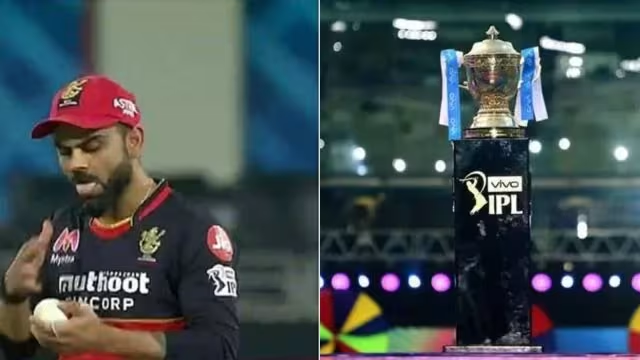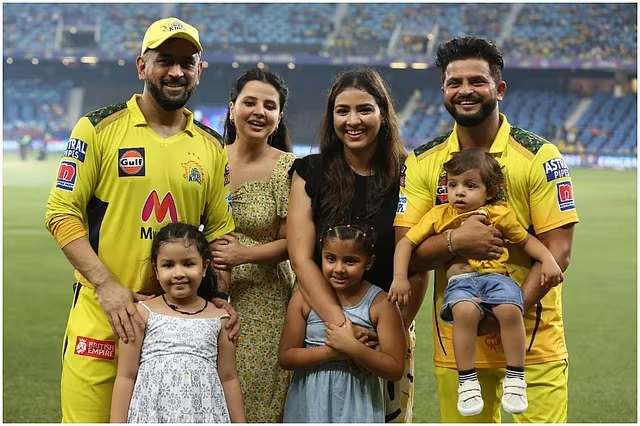The ban on using saliva to make the ball shine, which was imposed by the Board of Control for Cricket in India (BCCI) during COVID-19, has been lifted recently and will come into effect for the IPL 2025 season as BCCI Removes Saliva Ban. Most IPL captains backed the proposal during a recent meeting in Mumbai. Apart from this, the board has also come up with a new rule of a second new ball in the second innings to reduce the impact of the dew factor on the games.

Jump To:
Shami’s Appeal Has Also Deemed to Lift the Saliva Ban
On the first day of the Test match between India and Australia in Adelaide in December 2020, in line with the guidelines then by the International Cricket Council (ICC), the use of saliva was banned because of COVID-19 fear. Even the IPL followed the rules that were on par with international safety protocols. But what the ban meant for reverse swing division was a free-for-all debate in the cricketing fraternity, especially among fast bowlers.
One of the strongest voices for saliva usage to be reinstated in the game is India’s star pacer, Mohammed Shami. While taking part in India’s campaign during the Champions Trophy in Dubai, Shami said that the saliva ban had hindered bowlers from achieving reverse swing, resulting in a tilt in favour of batters. The sentiments were echoed by veteran pacers Vernon Philander and Tim Southee.
Responding to these concerns, the BCCI held an internal review and made a move to lift the ban at the meeting held among the captains. This official confirmation came through a majority approval from the captains, which makes the IPL the first major tournament to allow the use of saliva since the pandemic.
A senior BCCI official confirmed the development and said:
Before COVID, part of the game involved applying saliva to the ball. Now that the health risks have passed, it’s safe to allow it again, even in T20s.” The IPL is an innovative league, and we are sure this will help bowlers.”
Dew factor counter new rule in IPL 2025
“Another significant change is the BCCI has implemented the second-ball rule for IPL 2025 to counter the impact of dew in night matches. In most cases, dew benefits the team chasing a target as it renders bowlers unable to grip the ball properly, creating uneven conditions on a pitch.
According to the new rule, a second innings will begin with a new ball, and a second new ball will be taken after the 11th over. Ultimately, shorter formats encourage scores to be more competitive and winning the toss less valuable.
A BCCI statement explained:
All teams will be on an equal footing from the get-go.”
Effects of these law changes in IPL 2025
Now, with two complex rule changes in play, IPL 2025 is going to be even more competitive. Allowing saliva to be used again will help fast, bowlers, create movement off the seam, while lifting the second-ball policy will prevent any team from enjoying an undue advantage from dew.
With such decisions, BCCI is slowly making IPL a a future-ready tournament as the players’ concerns and changes in the game are being addressed.
What is dew, and why does it play a critical role in any cricket match?
Why Do Captains Like Chasing in the Subcontinent?
The toss in day-night cricket can be hugely important, particularly in the subcontinent. Chasing has, more often than not, become the line of least resistance for captains. The primary reason? Dew. Dew under artificial lights can make life that much easier for batters while causing all sorts of problems for bowlers and fielders. Ground and staff do their utmost to minimise its impact, but this natural phenomenon makes its presence felt on the field of play in a massive way.
What Is Dew?
Dew is nothing but moisture deposited on surfaces as a result of condensation. At night, when temperatures dip, humid air cools down, and water droplets form on the grass. In cricket, it becomes an important aspect, especially in the subcontinent, as high humidity ensures that dew sets in as the evening progresses.
Dew shows up where there are hot days and cold nights and is a common phenomenon in countries like India, Sri Lanka and Bangladesh. By contrast, in the Northern Hemisphere, where temperatures don’t vary so starkly, and sunsets come much later, dew has less of an impact.
How Is Dew a Terror for Bowlers in Big Tournament like IPL?
It is “horrible” to bowl with dew, according to former England off-spinner Graeme Swann. The ball picks up moisture from the outfield, which makes it almost impossible to grip. The surface is also slick, making it very difficult for the ball to turn — a particular problem for spinners, who rely on friction to add spin. Even if a spinner manages to get revolutions into the ball, the greasy pitch will take that out, giving the batters the luxury to play confidently.
That’s equally frustrating for seamers, as is the challenge they face. A bowler such as Mustafizur Rahman, whose arsenal includes slower cutters, struggles to trick batters when the moisture in the air makes the ball easier to read. That lack of grip on the seam also means there is less swing and less movement off the pitch, tipping the balance further in favour of the batting side.
Also Read:
Delhi Capitals Captain: KL Rahul Said NO to Captaincy of Delhi in IPL 2025
IPL 2025 – Squad of Chennai Super Kings (CSK) Top 15 Players
How Do Bowlers Counter Dew?
Bowlers employ a number of tactics to cope with dew, but the solutions are far from foolproof. The towel tucked in the trousers at the front is also used to wipe off excess moisture from the ball, but the seam is soaked, and gripping it becomes problematic. As Swann said, when the ball was drenched, it could take minutes to dry it completely, which could delay the game to the extent of being unbearable.
Spinners frequently make adjustments to their methods to help compensate for a lack of grip. They don’t dial in finger spin around the seam, relying directly on other means (rolling their fingers across the ball, bowling more arm balls). These minor adjustments keep control in range but do not entirely erase the power of dew.
Another unconventional approach includes witnessing climate patterns. Swann remembers Muttiah Muralitharan studying the morning sky for dew levels. If the sky had been clear, there would have been heavy dew; if it had been cloudy, it would remain dry. It allowed teams to plan their strategies accordingly.
Saliva Ban Is Lifted By BCCI, But Family Travel Rules May Change Amid Criticism From Senior Players
According to a report, BCCI is rethinking its zero-tolerance approach to family travel after ex-captain criticism. The board had earlier barred players from taking their family members on more than two weeks on a 45-day tour. In contrast, Kohli was against this cant, stating that family offers the best emotional and mental support during long tours.

Kohli’s Stance family Attendance
In a press conference related to IPL 2025 Royal Challengers Bangalore (RCB), Kohli expressed concern. He added that after the tiring number of hours cricketers spend on the field, they need to be with family, not alone. “If you ask any player, he would prefer to have his family around. I’m not going to go to my room and sulk by myself. I want to become normal, and a family is here to help! Playing cricket is a responsibility, and when you do your responsibility, you want to go back to your loved ones,” Kohli said.
Now, the BCCI has changed its mind, as a report by India Today states the BCCI would be willing to bend a little. If players want their families to join them for an extended amount of time, the board may grant them special permission to do so. “That BCCI source confirmed, “If any player wants their family to extend the tour, their permission can be sought. “After that, the BCCI will decide what to do.”
Watch this video from SportsTak on this topic!